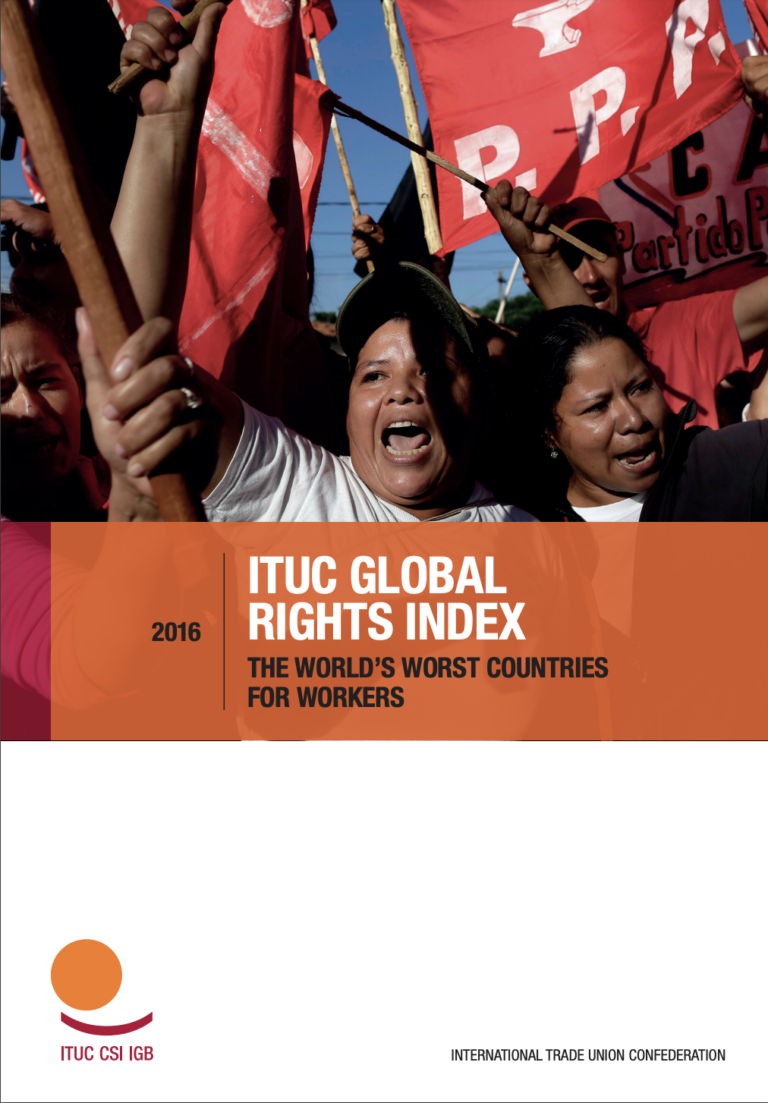ITUC Global Rights Index 2018: Ten worst countries in the world for working people
The 2018 ITUC Global Rights Index depicts the world’s worst countries for workers by rating 142 countries on a scale from 1-5 based on the degree of respect for workers’ rights with 1 being the best rating and 5 the...

